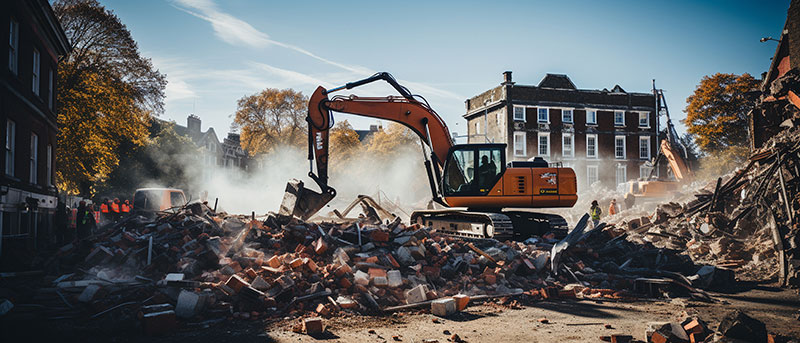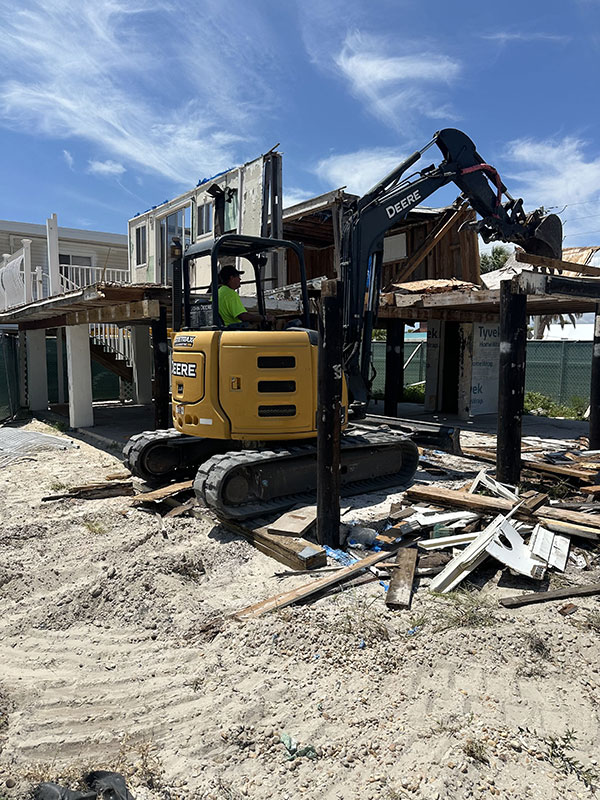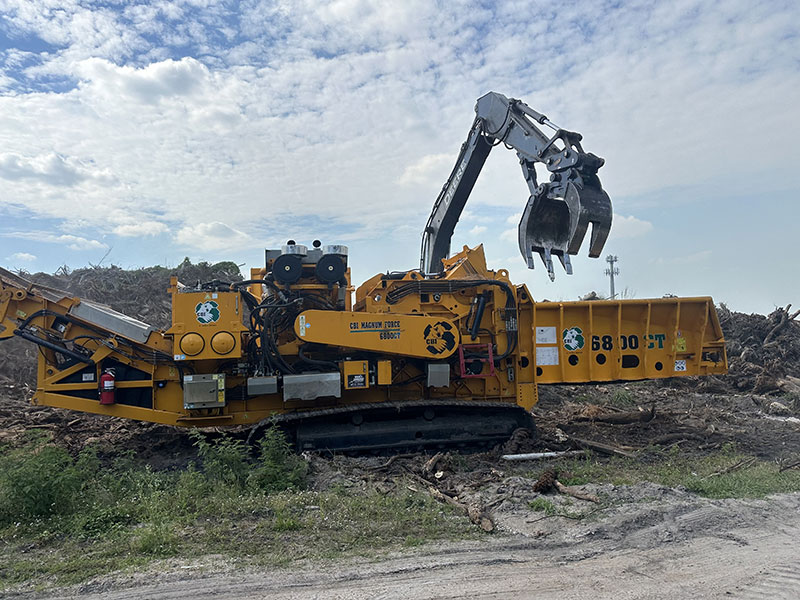Florida Demolition Company
Get a Quote For Your Project
Given the SW Florida’s specific environmental sensitivities and regulatory framework, demolition must be carefully planned and executed. Here are some key aspects of how demolition is integrated into land clearing projects in this area:

Regulatory Compliance:
As part of the regulation of our Florida demolition company, it is necessary to obtain the appropriate permits from local and sometimes state authorities. These permits ensure that the demolition process complies with all relevant safety and environmental regulations, which can be stringent in areas close to sensitive ecosystems or in zones with historical or archaeological significance.
Hazardous Materials Assessment:
Buildings and other structures may contain hazardous materials such as asbestos, lead paint, or chemicals. In Southwest Florida, an environmental assessment must be conducted before demolition to identify and plan for the safe removal and disposal of these materials.
Wildlife and Habitat Considerations:
The region is home to diverse wildlife, including protected species. Before a Florida demolition can take place, a survey may be required to determine if protected species are present, and if so, appropriate measures must be taken to relocate wildlife or implement protective actions during demolition.
Debris Management:
Demolition generates significant amounts of debris, which must be managed properly to minimize environmental impact. This includes sorting materials for recycling, such as metal, concrete, and wood, and properly disposing of non-recyclable materials. Efficient debris management helps reduce landfill use and can decrease project costs.
Water and Soil Protection:
During demolition, measures must be taken to prevent contamination of water and soil, especially in areas near water bodies. This might involve using barriers to prevent debris and pollutants from entering waterways and measures to control dust and runoff.
Use of Technology and Equipment:
Modern Florida demolition company techniques, such as the use of high-reach excavators and controlled explosives, are often employed to ensure the process is safe and efficient. The choice of technique depends on the structure’s size, location, and proximity to sensitive areas.
Noise and Vibration Control:
In populated or ecologically sensitive areas, controlling noise and vibration is crucial to minimize disturbance to nearby residents and wildlife. Techniques like using sound barriers and scheduling work during less sensitive times can be part of the planning process.
Florida Demolition Company Restoration and Remediation:
Post-demolition, the site often requires remediation to restore the land for future use, especially if the site was contaminated or disturbed during the demolition process. This might involve soil replacement, regrading, and the reintroduction of native vegetation.
Demolition as part of land clearing in Southwest Florida is a complex process that requires careful planning and execution to align with environmental, safety, and regulatory requirements. The goal is to minimize the impact on the environment and the community while efficiently preparing the site for its next phase of use.
- Demolition


Demolition Work FAQ
What permits are required for Florida demolition projects?
In Southwest Florida, you typically need to obtain local permits before beginning any demolition work. This includes checking with the city or county for any specific requirements related to noise, dust control, and disposal of materials. It’s essential to ensure all permits are secured to avoid legal issues and penalties.
How should hazardous materials be handled during demolition?
What are the best practices for minimizing environmental impact during Florida demolition projects?
Best practices include using dust suppression methods like water spraying to control airborne particles, recycling demolition debris, and carefully planning the demolition to prevent unnecessary damage to the surrounding land and vegetation. Also, implementing erosion control measures is crucial to prevent soil loss and water pollution.
Can Florida demolition debris be recycled, and how is it done?
Yes, much of the demolition debris can be recycled. Materials like concrete, metal, wood, and bricks can be separated and processed for reuse. Recycling not only reduces the amount of waste in landfills but can also lower the project costs by reducing disposal fees and sometimes generating income from recycled materials.